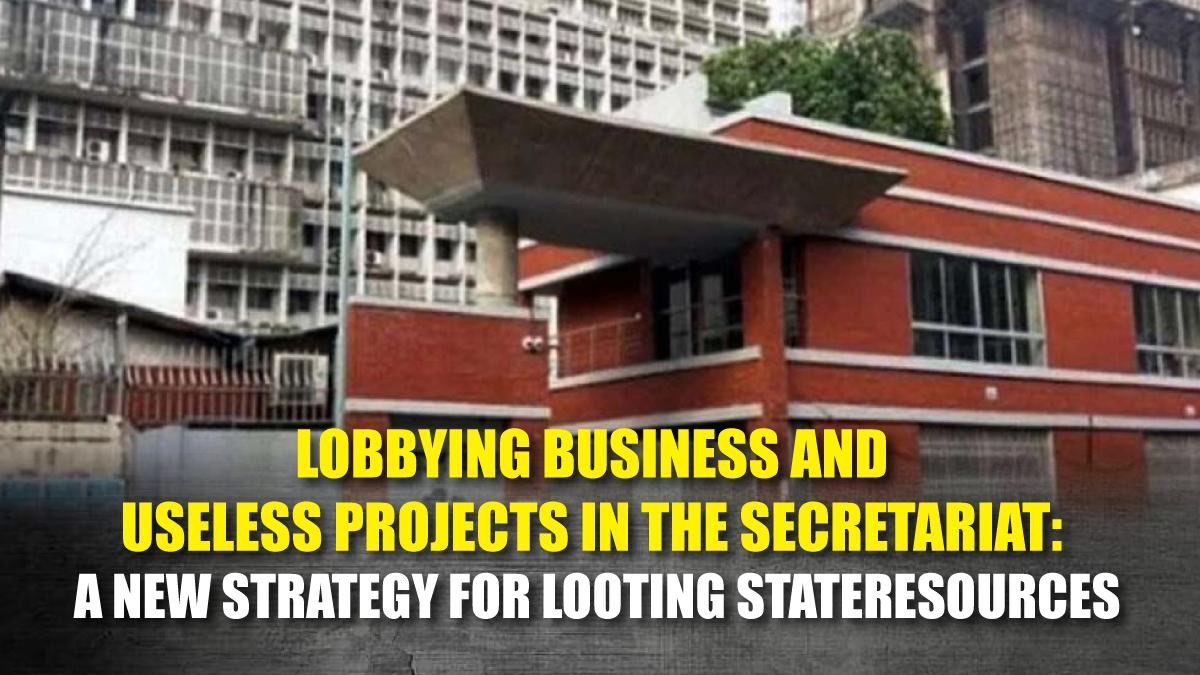Bangladesh today faces a strange reality. Where the continuity of development has stalled, there has begun a frenzy of unnecessary projects. These projects serve no national need, carry no sign of public welfare—yet they are being approved. Why? Because these have become the easiest method of looting.
It is alleged that if the actual cost of a project is 10 crore taka, it is shown as 100 crore taka. The remaining 90 crore is divided among secretaries, advisers, political elites, and the financiers behind them. Even though development has stopped, corruption never does—this picture proves that.
The Price of Promotion in the State
The highest bureaucratic post in the state—the post of secretary—is no longer attained through merit or competence, but rather purchased with money. Sources say that to become a secretary or to be posted in an important ministry, one has had to spend between 20 to 50 crore taka. Naturally, a question arises: how will such an officer recover that huge amount of money? The answer is clear—by creating unnecessary projects and inflating expenditures.
The commerce of promotion has driven secretaries to recklessness in their bid to recover both principal and interest. The focus is no longer on projects, but solely on allocations.
Jamaat-e-Islami Funding and Influence
Lobbying Business and Useless Projects in the Secretariat: A New Strategy for Looting State Resources
More concerning is the involvement of Jamaat-e-Islami groups in financing this trade. It is alleged that the money required for bureaucratic promotions is being supplied by Jamaat. The Jamaat funding groups then recover multiple times their investment. For example, if a secretary spends 50 crore taka on promotion or posting, Jamaat extracts 100 crore or more in return. In effect, the operations of the Secretariat are falling under the financial dominance of Jamaat-aligned forces.
This situation not only breeds corruption but also pushes the administrative structure under the control of sinister political powers.
Victimized Businessmen and Economy
This looting is not confined to the Secretariat alone. Businesspeople who thrived during the Awami League era are now being targeted. Land, factories, and apartments are being forcibly taken over at half their value. Entrepreneurs are losing assets under fear and pressure; investments are shrinking, and employment opportunities are contracting.
Where the wheels of the economy should be dynamic, extortion, land-grabbing, and project trading have almost brought them to a halt.
An Ominous Sign for the State
A state does not survive on laws, constitutions, and policies alone; it survives on trust. If citizens lose faith that the government and administration are working for them, the entire structure collapses quickly. Under the illegitimate Yunus government, that trust is eroding rapidly.
On one side is looting under the guise of unnecessary projects, on the other, the commercialization of the Secretariat—together, they are pushing Bangladesh into a deep administrative and economic deadlock.
What the nation needs today is genuine development, employment, and poverty alleviation. Instead, we see the opposite: the economy of the state being used to satisfy the greed of a select group. This is not only corruption but a threat to the very existence of the state.
If Bangladesh is to be saved, this cycle of trade and looting must be broken. Otherwise, the administrative structure will fall into the hands of Jamaat-e-Islami and land-grabbing groups, leading the nation to an even greater disaster.





